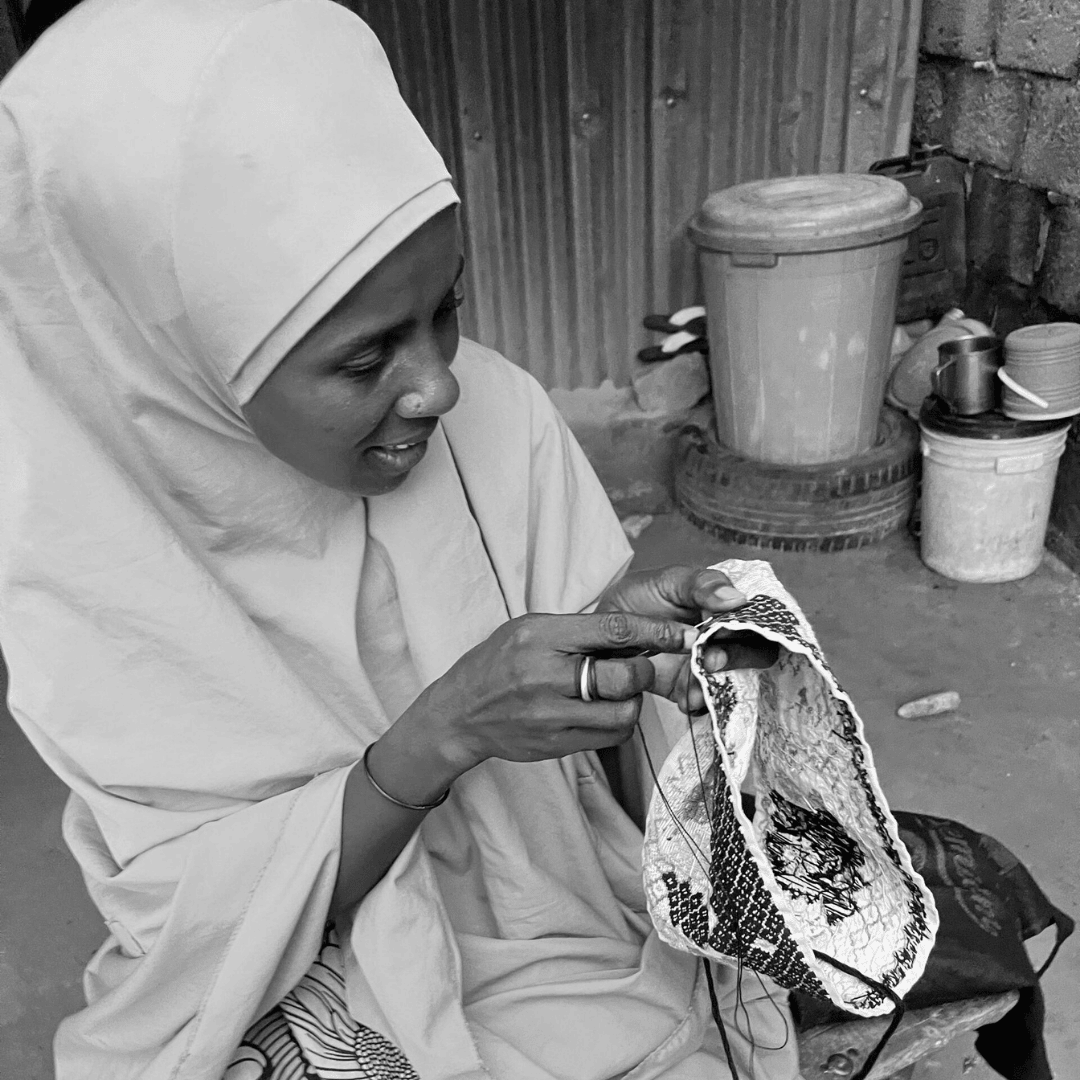I was a trader before Boko Haram invaded our town. I ran a small business in the market where I sold foodstuffs and household goods. It wasn’t a big shop, but I was proud of it. Every morning, I would leave home early, arrange my goods, and spend the day attending to customers. From the profits, I was able to feed my family, send my children to school, and even save a little for the future. At that time, sewing was far from my mind. I had never even imagined holding a needle to make a cap. My world was trading, and I thought I would continue with it for the rest of my life with a lot of hope.
But then, everything changed. The Boko Haram crisis struck our community, and our lives were thrown into confusion and fear. The market was no longer safe. It was on a Thursday morning, during an attack, that I lost everything. My shop was destroyed, my goods were scattered, and all the money I had worked so hard to save was gone. The life I had built crumbled before my eyes. With tears and a heavy heart, my family and I fled for safety.
After a couple of days, we found ourselves in an IDP camp. Life there was very different. I was no longer a proud trader but a displaced woman depending on relief materials. Sometimes, food was not enough. Sometimes, I lay awake at night wondering how my children would survive. I felt helpless, like a bird with broken wings.
But as the days turned into weeks, I began to notice something in the camp. A group of women had started learning how to sew traditional caps. At first, I watched them from afar. My heart told me, “Aisha, you have never done this kind of work. Can you really start now?” But my situation pushed me to try. I joined the training, and for the first time, I picked up a needle and thread.
It was not easy in the beginning. My fingers felt stiff, my eyes strained, and sometimes I wanted to give up. But I reminded myself that I had lost everything. I could not afford to lose this chance. Slowly, I began to improve. With every cap I completed, I gained more confidence. When I sold my very first cap, the money was small, but the joy in my heart was huge. It was proof that I could still provide for my family with my own hands.
From that moment, I dedicated myself fully to cap sewing. I would sit for hours, carefully stitching, and each design I completed felt like a prayer answered. My husband gave me strength. Even though we had lost so much, he stood by me, encouraging me and helping with what little he could.
Over time, the small income I earned from selling caps became our means of survival. It wasn’t as much as my trading business used to give, but it was enough to keep food on the table and send the children to school. Day by day, life slowly began to take shape again.
Today, I look back and realise that sometimes, loss opens the door to hidden strength. I never thought I would become a cap maker, but now it is my lifeline.
As narrated by: Aisha Umar Ali (Maiduguri, Nigeria).
This snippet is published as part of a series, The Day Boko Haram Attacked.
Discover more from Chronycles
Subscribe to get the latest posts sent to your email.

Published by